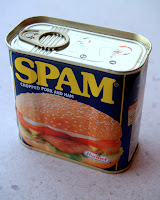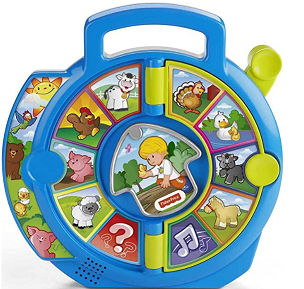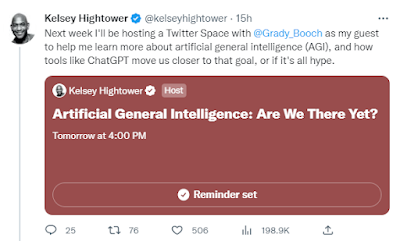A Brief History of Spam
While, perhaps, not as good as Stephen Hawking's Brief History of Time. Today's post is a bit of a history lesson in SPAM.
Back in the early days of the Internet, even before the "World Wide Web", cell phones, and Instagram, one of the first ways of communicating was electronic mail. E-Mail was the new and exciting kid on the block (Imagine That!). University students would email their professors their reports using command line interfaces, and share thoughts and ideas with students in other universities around the world, and life was good. Remember this young ones - the key magic about the internet was that it allowed for discourse, the connection of people all around the world together, quickly and easily (and almost for free!)
(Disclaimer:SPAM is a trademark of Hormel foods). This article is un-related to the luncheon meat, though if reading this makes you hungry for some, feel free to go out and enjoy some). The word 'spam' here in lower case refers to the internet notion of unsolicited commercial email (UCE)
Now - any tool once created by human kind, can be used in unattended ways to cause harm, and electronic email is no different. It costs nothing (other than an internet connection) to send email, and I can write a program ('bot') that sends you 1000 emails a second, bombarding your email, clogging up your INBOX, possibly locking your account and preventing you from actually doing any 'real communication'. Doing something like that today will likely land you in some serious sh!t. But back in the early 1990's, there was very little regulation, you might get a slap on the wrist for violating some ISP's terms of service, and only then if there were a large amount of complaints against you.
And despite what definition you find about 'spam' or 'Unsolicited Commercial Email'. What makes something 'spammy' is that it inhibits that natural flow of dialog between parties that the Internet was intended to provide. The best example of this is the Monty Python sketch
Notice how the speaker continuously adds the word 'spam' to drive out the meaning of the message "Eggs, and Sausage and Spam", "Spam and Eggs and Sausage and Spam', "Spam and Spam and Sausage", .. "Spam and Spam and Spam... " - you get the idea. Your goal is to find out 'what's for breakfast' and in order to find the answer you have to first wade through all the 'spam'
Today the internet is largely commercialized, people who make videos and blog posts, make money by including advertisements. The problems is how many advertisements. If your 15 minute video has 4 2 minute commercials. Is your message really getting across? - if not it's just a bunch of spam.
The first spam
The road to hell is paved with good intentions right? - In the 1970's a gentleman, wanted to raise awareness for a new mainframe computer. It seemed like a good idea at the time to email everyone he could think of telling them how great this machine is and that they should buy one too. Although his email met with a lot of negative reviews, the story goes that they did sell a lot of those mainframes.
A few years later Richard Depew accidentally posted 200 messages not to email but to a newsgroup server (Usenet) This is believed to be where the very first use of the word "spam" was coined.
My first spam happened at a summer job in 1995. I thought I was emailing a usenet group question about HTML, when the new message popped up, it had an odd 'To:' field, so I typed in "ALL" (because I wanted all members of the newgroup to see it..seemed logically at the time). What I did not realize is that instead of posting to the newsgroup, it sent it to all employees of the company.. Within 10 minutes, the system administrator and I sat down for a little 'chat'. It all worked out okay, some fellow employees actually emailed me the answer I needed!
Is spam intentionally designed to 'harm'?
At one of my first jobs, the marketing department loved to send out 'mass mail' campaigns, and many of them included educational information about "how to do x" and by the way did you know we can help you do "x" faster for just $19.95?
Marketing Departments also take out ads in magazines, create fliers, mail (snail mail) things to potential customers. When email starting getting used - well it was 'FREE', suddenly companies could reach all their clients without even paying or the cost of a stamp!
To be clear, it is never the intention of any business to clog the inboxes of others with advertising, they want to generate leads and future business - if inboxes get clogged that is just an un-intended side effect.
There is some spam, however, that is designed to harm. I recall being a sys admin myself sometime around the year 2000, when our companies email server starting receiving an email attachment which looked like a 'notepad' document. I educated users prior to this not to open attachments from people unknown. BUT - these emails came from people you knew, because when you opened it it sent out copies of itself to everyone in your address book, claiming to be you - so people 'trusted it' and it literally 'went' viral' over email.
Another thing that used to happen a lot in the day - Emails in by inbox telling me to buy "X" stock while it was low, and promised I would make millions of dollars. Known as 'pump and dump' schemes. As email systems began installing software to detect "spam" before it went to the users Inbox. These systems put the text of the message inside an image which the user could read, but the computer could not. The spam filter could not identify it as spam so it still arrived in the Inbox. These emails were scams that stole millions of dollars from people believing they were going to become rich themselves.
Spam Laws
The first anti-spam law was proposed in 2003. Ironically, they called it 'CAN-SPAM" which sets the rules (for USA) at least about what emails businesses can send. Other countries came up with their own laws soon thereafter. In Canada it is actually called the 'anti-spam legislation'
With time (and perhaps to avoid copyright/trademark infringement lawsuits). The technical / non offending term to be used today is "UCE" - "unsolicited commercial email"
Today as spam filters increase in intelligence, very few actual spam even reaches your inbox, most regulations require the ability for your to "opt-out" of a mailing list, some however do not prevent that mailing list from putting you on a different mailing list after opt-out. For every rule created, someone finds some way to circumvent it and the war on spam continues.
Spam has risen beyond email of course, a simple example is 'blog spam'. From the time I started blogging I started getting comment spam.
Today I get 'SMS' spam. Text messages from places where I shopped, telling me of the latest details (oddly after I leave the store). I am uncertain if there is a loop-hole in how SMS applies to spam regulation?
Most recently, I see it a lot in Telegram messenger.
So long as email is 'free' to send, spam is likely here to stay..and whatever you do, please don't believe that email that "Bill Gates" will give you $1 for every email you forward" - It's a hoax
Friends do not let Fiends send email unsolicited.









Comments
Post a Comment